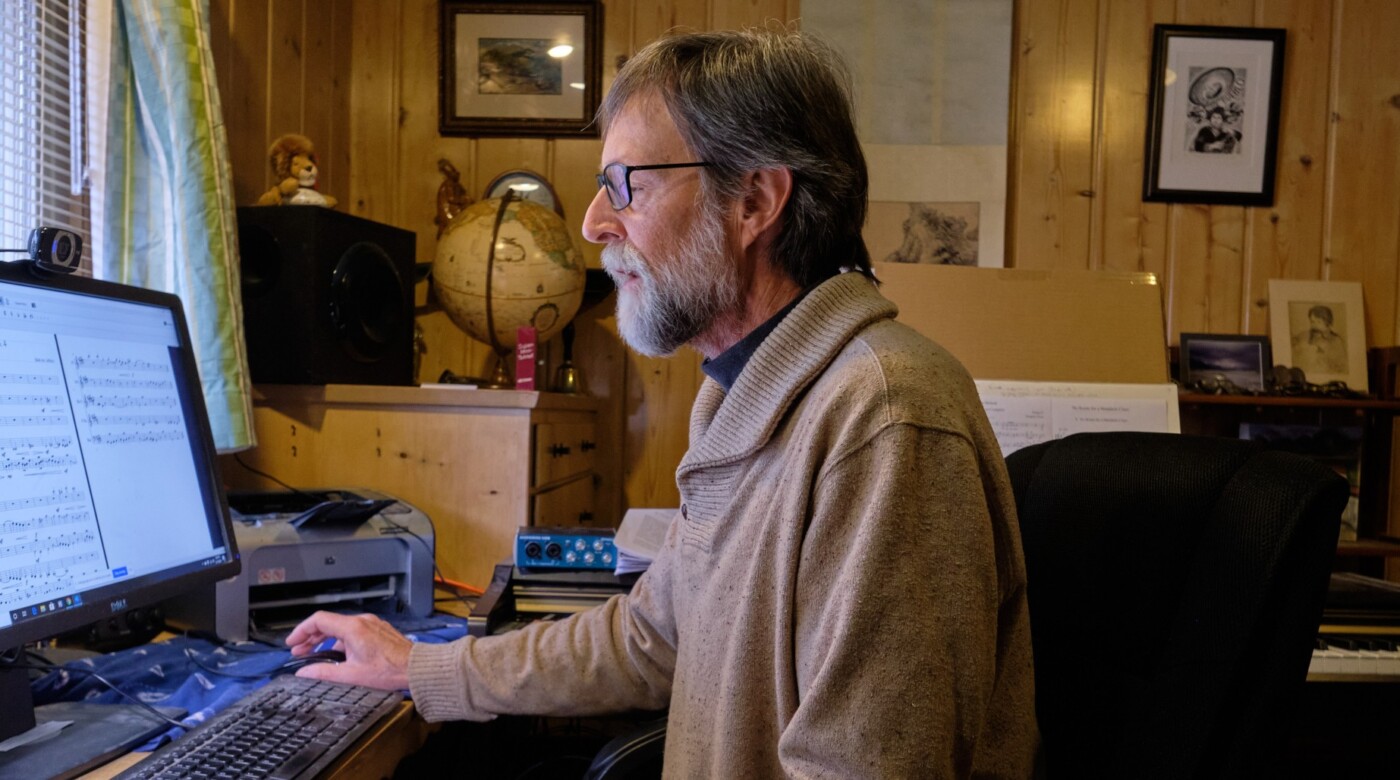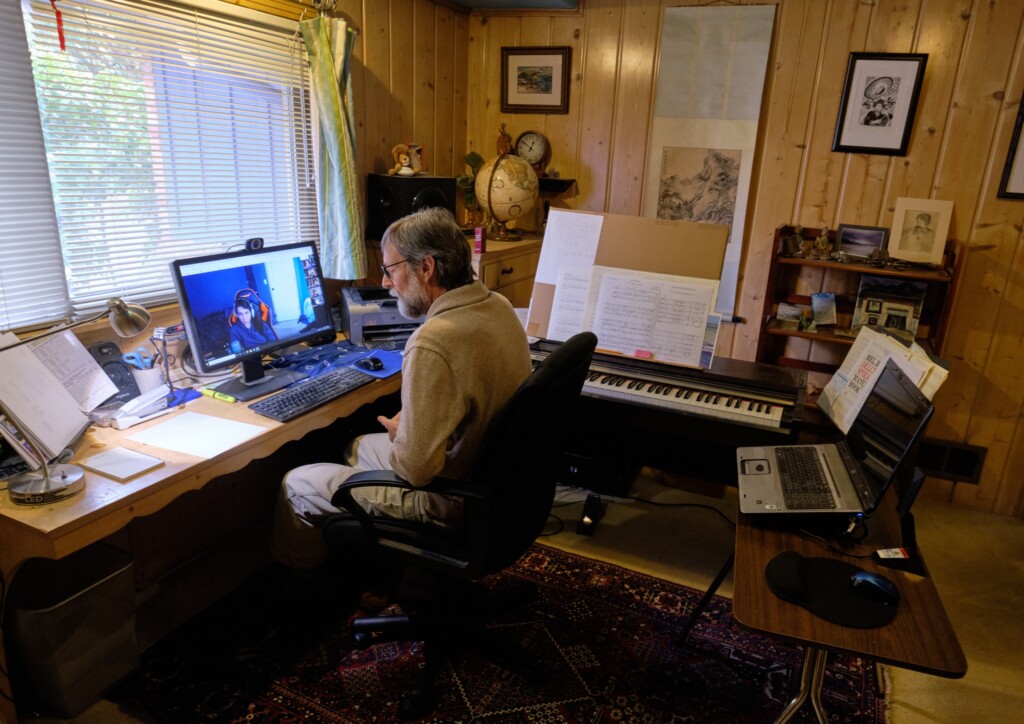Prof. Gregory Youtz talks transitioning classrooms and teaching styles to distance learning

Image: PLU professor of music Gregory Youtz teaches a distance-learning music course from his home. (Photo/John Froschauer)
By Thomas Kyle-Milward
Marketing & Communications
TACOMA, WASH. (March. 19, 2020) — Switching a campus-based curriculum to a distance-learning model mid-semester in the face of a pandemic is no easy feat. Luckily, PLU professor of music Gregory Youtz and his faculty peers have proved to be up for the challenge.
Under the recommendations of public health professionals and the guidance of the governor’s office during the COVID-19 pandemic, PLU made the decision on March 7 to transition Spring semester courses from the traditional classroom setting to a remote learning format.
We discussed with Youtz the impact that decision has had on his Class Composition MUSI 326 course, how he’s adapted his teachings to meet this new landscape and the unexpected benefits of distance learning.
PLU: We’re about a week into PLU’s shift to distance learning. What’s the transition been like?
Youtz: This past week has been both tiring and exciting. I am always up for a new adventure, and so figuring out online classes and music lessons has been novel and thus fun. I am constantly concerned that it is not “as good” as face to face, and am having to exhort both myself and my students to get over that comparison and to find instead the specialness of online academia and how to make it work for us! (And I have to remember to have the “Chat” function on and visible so that I notice and can respond to student questions as I present!)
PLU: How have you adapted your traditional teaching methods for video and other online-only instruction?
Youtz: I am adjusting and expanding some assignments, placing the learning more on the students’ activity than on my own delivery. This means I need to be very clear in my description of the activity, its value and its intended learning outcomes. I just created a Sakai Project Site for my Composition Seminar and will try it out tonight. The idea is that we can post our recent music there and listen to it, and respond — both synchronously in conferences and asynchronously in chat rooms.
PLU: Some academic disciplines are more natural fits for online instruction than others. Has teaching music through a distance-learning model been challenging?
Youtz: Fortunately the abundance of music on Youtube makes it very easy for me to use Sakai to prepare learning experiences for my students that they can do on their own — listening, following musical scores, analyzing techniques. The biggest technical challenge in my field seems to be getting good audio while video conferencing. I am feeding sound from my speakers back into my microphone and then students are listening to that. It’s pretty unintelligible, so I am now resorting to having students do this listening to each other’s work prior to class and then just talking about it during the conference. But most composers are lone wolves who are used to working by themselves, so most of our work goes on unchanged…
PLU: How have students responded to the switch to distance learning?
Youtz: Some of my students seem to have responded well to the new methods, some have not. They are all very comfortable online, but usually in their own online activities — chatting, gaming, researching, etc. Doing serious academic classwork online is, I suspect, less familiar or comfortable to them.
PLU: You’re one of the university’s faculty members who has completed the PLU Teaching Online (PLUTO) and Blended Learning programs. How has that training set you up for success in this unique situation we’re facing?
Youtz: Because of the PLUTO experience and my development of blended and online learning courses over the last five years, my Sakai websites are quite robust and serve me very well during this time. I am used to delivering content remotely and “flipping” the classroom. My students have thus not noticed a huge change in content delivery, though they do clearly miss the face-to-face time with me and their peers. The PLUTO training experience resulted in one of the most significant and positive shifts in my own pedagogy in my 36-year career. I volunteered to do it because I felt this was probably the future of academia — I just had no idea how quickly “the future” might emerge!

What is PLUTO?
Want to learn more about PLU Teaching Online (PLUTO)? Click here.
PLU: Have you discovered a benefit you weren’t expecting from this transition?
Youtz: I am using this opportunity to get students to think about their own “learning outcomes” and what they can use this unique period of time to accomplish. I am suggesting they format very specific academic goals: write music that exercises something they know they are weak in; write pieces that they know will be useful in their portfolios or future careers; write digital music for their computers to play, or write music for friends thus ensuring performance as soon as this is over. This unexpected “timeout” can be a gift if we choose to think of it that way: what can I do right now, right here, that I would not normally have thought to do? What shall I choose to do that will make me proud once this is over?


